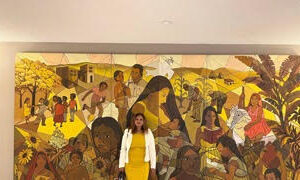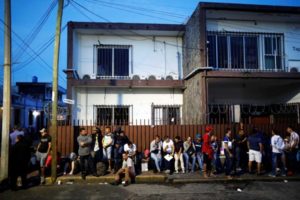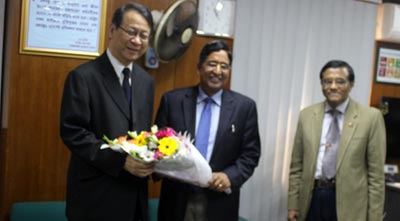A young woman has become the first protester to die in the anti-coup demonstrations in Myanmar after she was shot in the head.
Mya Thwe Thwe Khaing, 20, was injured earlier last week when police tried to disperse protesters using water cannon, rubber bullets and live rounds.
Her wound was consistent with one from live ammunition, rights groups say.
Myanmar has seen days of protests following a coup which overthrew Aung San Suu Kyi’s elected government.
The hospital in the capital Nya Pyi Taw confirmed her death at 11:00 local time (04:30 GMT), the BBC understands. A member of the funeral committee told BBC Burmese that funeral arrangements were being made and more details would be released.
“We will look for justice and move forward,” a doctor told AFP news agency, adding that staff had faced immense pressure since she was taken to their intensive care unit.
The victim’s brother told news agency Reuters that he had “nothing to say”, adding that he felt “really sad”.
Authorities said they would investigate the case, said Reuters.
Mya Thwe Thwe Khaing, who turned 20 after she was shot, had been on life support since taken to hospital on 9 February.
She had taken part in a protest in the South-east Asian nation which saw police use water cannon against protesters who refused to retreat.
According to BBC Burmese, who spoke to an unnamed medical officer shortly after she was brought to the hospital, she suffered a serious head injury.
Why are people protesting in Myanmar?
Myanmar is now in a year-long state of emergency, after the military seized power following a general election which saw Ms Suu Kyi’s National League for Democracy (NLD) win by a landslide.
The military claim the election results are fraudulent, and demand a rerun of the vote.
Power has been handed to commander-in-chief Min Aung Hlaing. Ms Suu Kyi is under house arrest, accused of possessing illegal walkie-talkies and violating the country’s Natural Disaster Law.
Protesters are calling for her release, along with the release of other NLD members. The country is now seeing some of the largest demonstrations since the so-called Saffron Revolution in 2007.
Clashes have taken place between security officers and protesters, and the military has also been blocking the internet in a bid to stifle dissent.
Source: BBC






















